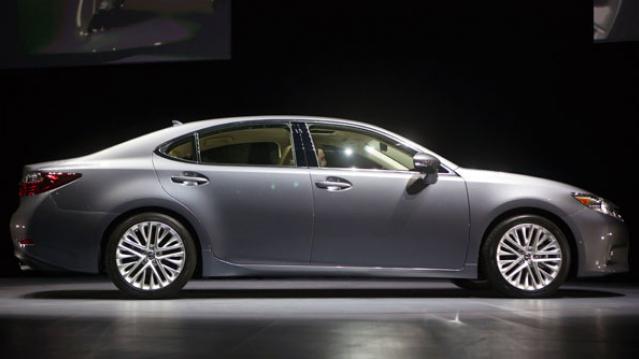Americans Are Happier with This Car Brand Than Any Other

Americans may love their cars, but these days they love them a little less.
Consumer satisfaction with their cars has fallen for the third consecutive year, reflecting unhappiness with increasing recalls and rising prices, according to new data from the American Customer Satisfaction Index.
Car reliability has improved overall in the past decade but the number of recalls is at an all-time high. “This should not happen with modern manufacturing technology and has negative consequences for driver safety, costs, and customer satisfaction,” ACSI Chairman and founder Claes Fornell said in a statement.
Car owners in the second quarter of 2015 reported a 40 percent increase in recalls year over year. The most high profile recalls involve Takata airbags, affecting more than 17 million older-model vehicles built by 11 different auto makers.
Related: Senators Urge Recall of All Vehicles with Takata Airbags
Looking at individual brands, the index shows that Americans prefer Japanese and luxury brand cars, with Lexus displacing Mercedes Benz as the brand with the highest overall satisfaction (84 out of 100). Mercedes tied for second place with Acura and Lincoln.
The average for all autos fell 3.7 points to 79. The only American automaker to rank above average was Ford with a score of 81. General Motors and Chrysler saw their scores fall modestly to 79 and 75 respectively.
Despite a growing decline in satisfaction, Americans are holding onto their vehicles longer than ever. The average age of cars and light trucks is now 11.5 years old, according to a report issued last month by IHS Automotive.
Top Reads from the Fiscal Times:
- Big Surprise: Hispanic Voters Can’t Stand Donald Trump
- How a Biden-Warren Ticket Could Transform the Campaign
- Air Force Brushes Off $27 Billion Accounting Error
Tweet of the Day: The Black Hole of Big Pharma

Billionaire John D. Arnold, a former energy trader and hedge fund manager turned philanthropist with a focus on health care, says Big Pharma appears to have a powerful hold on members of Congress.
Arnold pointed out that PhRMA, the main pharmaceutical industry lobbying group, had revenues of $459 million in 2018, and that total lobbying on behalf of the sector probably came to about $1 billion last year. “I guess $1 bil each year is an intractable force in our political system,” he concluded.
Warren’s Taxes Could Add Up to More Than 100%

The Wall Street Journal’s Richard Rubin says Elizabeth Warren’s proposed taxes could claim more than 100% of income for some wealthy investors. Here’s an example Rubin discussed Friday:
“Consider a billionaire with a $1,000 investment who earns a 6% return, or $60, received as a capital gain, dividend or interest. If all of Ms. Warren’s taxes are implemented, he could owe 58.2% of that, or $35 in federal tax. Plus, his entire investment would incur a 6% wealth tax, i.e., at least $60. The result: taxes as high as $95 on income of $60 for a combined tax rate of 158%.”
In Rubin’s back-of-the-envelope analysis, an investor worth $2 billion would need to achieve a return of more than 10% in order to see any net gain after taxes. Rubin notes that actual tax bills would likely vary considerably depending on things like location, rates of return, and as-yet-undefined policy details. But tax rates exceeding 100% would not be unusual, especially for billionaires.
Biden Proposes $1.3 Trillion Infrastructure Plan

Joe Biden on Thursday put out a $1.3 trillion infrastructure proposal. The 10-year “Plan to Invest in Middle Class Competitiveness” calls for investments to revitalize the nation’s roads, highways and bridges, speed the adoption of electric vehicles, launch a “second great railroad revolution” and make U.S. airports the best in the world.
“The infrastructure plan Joe Biden released Thursday morning is heavy on high-speed rail, transit, biking and other items that Barack Obama championed during his presidency — along with a complete lack of specifics on how he plans to pay for it all,” Politico’s Tanya Snyder wrote. Biden’s campaign site says that every cent of the $1.3 trillion would be paid for by reversing the 2017 corporate tax cuts, closing tax loopholes, cracking down on tax evasion and ending fossil-fuel subsidies.
Read more about Biden’s plan at Politico.
Number of the Day: 18 Million

There were 18 million military veterans in the United States in 2018, according to the Census Bureau. That figure includes 485,000 World War II vets, 1.3 million who served in the Korean War, 6.4 million from the Vietnam War era, 3.8 million from the first Gulf War and another 3.8 million since 9/11. We join with the rest of the country today in thanking them for their service.
Chart of the Day: Dem Candidates Face Their Own Tax Plans

Democratic presidential candidates are proposing a variety of new taxes to pay for their preferred social programs. Bloomberg’s Laura Davison and Misyrlena Egkolfopoulou took a look at how the top four candidates would fare under their own tax proposals.


